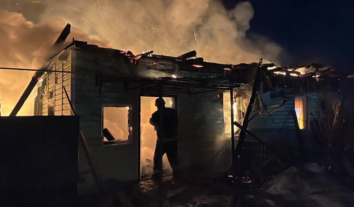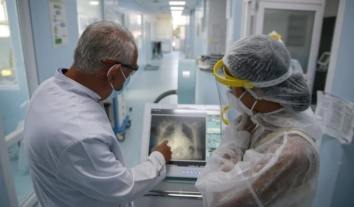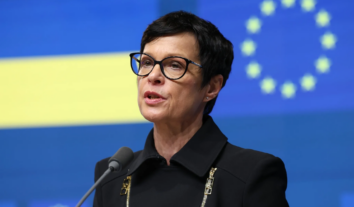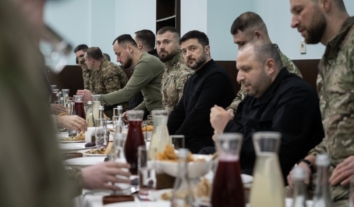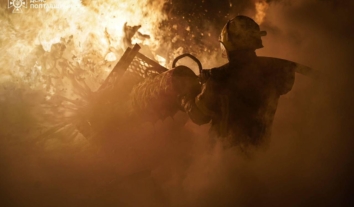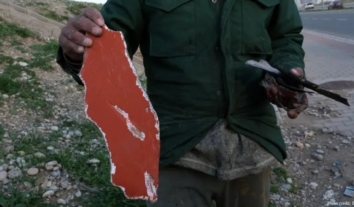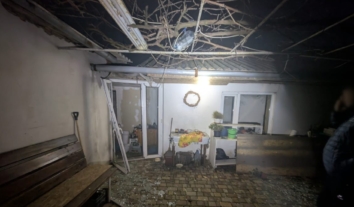Human Rights Advocates tell the UN how Russia Violates Human Rights
Russia bears full responsibility for human rights violations in Crimea and the Donbass because it has de facto control over these territories and manages the organized armed groups that are there.
This statement was made by Olexandra Matviichuk, the Head of the board of the Center for Civil Liberties, at the 113th session of the UN Human Rights Committee, which is currently being held in Geneva, reports a Human Rights Information Center correspondent. Matviichuk was presenting an alternative report from Ukrainian NGOs during the discussion of Russia’s obligations.
According to her, the occupation of Crimea by Russia has led to massive and systematic violations of human rights. To overcome the resistance of civil society, at least two dozen people have been kidnapped, at least three were killed, six people were tortured, and the locations of nine people are still unknown.
“The occupation authority bears full responsibility for numerous violations. In Crimea, peaceful assemblies are constantly and groundlessly prohibited. All Ukrainian media are closed and the only Crimean Tatar channel, ATR, is suffering because of accusations of “extremism.” Politically motivated criminal cases against journalists, civil society activists, and the leaders of the Crimean Tatar community have been initiated. The property of the Ukrainian Orthodox Church of the Kyivan Patriarchate has been illegally seized. The Muslim community is under unprecedented pressure,” said Matviichuk.
Matviichuk noted that the majority of human rights violations on the peninsula involve the so-called “Crimean Self-Defense,” a paramilitary group which receives technical and organizational support from the occupation authorities. Despite the large number of crimes by “Crimean Self-Defense,” not one of them has been investigated and the responsible have not been punished.
“Because of the so-called ‘default citizenship,’ Russia has deprived people in Crimea right to choose their citizenship. Those who have not received Russian passports suffer from discrimination. They have lost access to a variety of health services, social security, the possibility to protect their property, and places of work,” added Matviichuk.
According to her, while in Russia persecution is used selectively against certain groups of people, in Crimea the occupying power has engaged an entire machine of repressive legislation and other Russian practices to fully suppress any alternative point of view on the peninsula.
Speaking about the situation in the East of Ukraine, Matviichuk noted that although Russia continues to deny any involvement in the armed conflict, there is a lot of concrete evidence of participation by regular Russian military units.
“Organized armed groups of the so-called Luhansk and Donetsk People’s Republics are proxy agents of the Russian Federation. They exist through various forms of support from Russia – financial, political, technological, military, etc. Organized armed groups have launched a large-scale terror campaign against the civilian population in order to establish control over the region. Daily beatings, kidnappings, hostage-taking, torture, and extrajudicial killings have become commonplace in the territories under their control,” said Matviichuk.
With this in mind, Ukrainian human rights organizations call on the Russian Federation to provide immediate access to the territory of Crimea and to not interfere with the work of the UN Monitoring Mission, the OSCE High Commissioner on National Minorities, and the Ukrainian Parliament Commissioner for Human Rights and to discontinue the practice of groundless prohibitions and restrictions of the rights and freedoms of Crimeans.
Human rights advocates also demand an immediate end to the supply of militants to the so-called “DPR” and “LPR,” a withdrawal of regular troops and military equipment from the territory of Ukraine, and the release of all illegally detained military and civilians.
The alternative report on human rights violations by the Russian Federation in Crimea was prepared by a coalition of NGOs, among them “Almenda” Civic Education Center, the Center for Civil Liberties, the Human Rights Information Center, the Committee on the Protection of Human Rights of the Crimean Tatar People, the Regional Center for Human Rights, the Ukrainian Helsinki Human Rights Union, and the Ukrainian Center for Independent Political Research.



